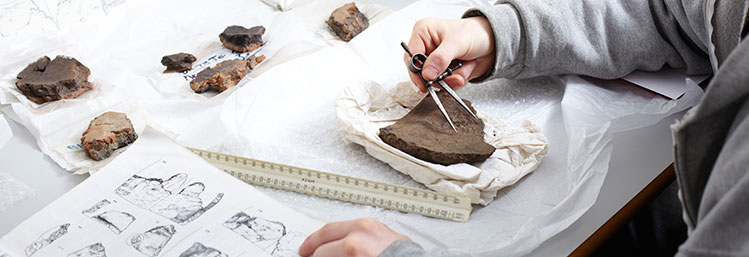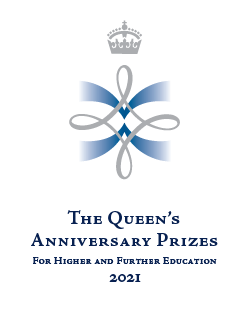
Archaeology
BSc (Hons)
- Typical offer for 2025
- Duration
- UCAS code
Suitable for applications.
Archaeology isn’t just excavations but a variety of lab based courses. I chose this course because it allows students to do a combination of both scientific and non-scientific modules. Students have the flexibility to explore many different areas within archaeology.
Placement Year
The placement year gives you the opportunity to gain real experience and professional training within your degree in order to kick-start your career. It is unique and valued throughout the archaeological world.
We have sent students to every continent over the 40 years the programme has been running.
Learning and assessment
Stage 1 introduces you to a range of archaeological periods, regions and materials, and the development of archaeology as a discipline. Practical modules such as Introduction to Archaeological Methods and Field Recording Skills allow you to handle real archaeological materials and explore methods of field survey and the principles of stratigraphy. Through the Scientific Frameworks module, you are also introduced to the main scientific techniques used in modern archaeology.
Stage 2 develops your critical thinking and offers an element of optionality in your studies. Participation in Archaeological Fieldwork is allocated by a CV and letter of application and allows first-hand experience of excavation and recording, enabling you to make own decisions under supervision. Understanding Artefacts logically follows the excavation stage and demonstrates the processes needed to understand archaeological artefacts and how they inform wider archaeological debates. Heritage Management with GIS follows British Archaeology in examining the legal and financial context of the discipline.
Other optional modules complement the core modules examining ethical and scientific issues (Bioarchaeology: Humans, Plants and Animals) and cultural archaeology from the Palaeolithic to the Viking period (Prehistoric Societies; Celts, Anglo-Saxons and Vikings).
Stage 3 develops your critical thinking further, and allows greater self-learning through the Dissertation. Bones, Bodies and Burials builds on Biological Anthropology: From Human Evolution to Forensic Anthropology (stage 1) and Bioarchaeology: Humans, Plants and Animals and Interpreting Archaeology (stage 2) to permit the detailed study of human remains in their cultural context.
Assessment methods include:
- essays
- portfolios
- worksheets
- critiques
- laboratory reports
- group-work
- poster (in the placement year)
- oral presentations
- research designs
- reflective journals
- examinations
The research design and dissertation develops your ability to undertake independent research and plan this research effectively.
University of Bradford honoured with Queen’s Anniversary Prize for outstanding archaeology
We have been awarded a 2021 Queen's Anniversary Prize for Higher and Further Education for our world-leading work in developing archaeological technology and techniques and its influence on practice, policy and society.
The prestigious accolade, which honours world-class excellence and achievement, is the highest form of national recognition that UK higher education institutions can achieve. The University has been honoured for its leadership and innovation in pioneering the techniques, technology and practices of archaeology both in the UK and worldwide.

Study support
Our comprehensive support services will help you to achieve your full potential – both academically and personally.
We provide all you need to make the very best of your time with us, and successfully progress through your studies and on into the world of graduate employment.
Our support services include:
- Personal tutors
- Disability services
- Counselling services
- MyBradford student support centres
- The Students’ Union
- Chaplaincy and faith advisers
- An on-campus nursery
- Halls wardens
We have well-stocked libraries and excellent IT facilities across campus. These facilities are open 24 hours a day during term time, meaning you’ll always find a place to get things done on campus.
Our Academic Skills Advice Service will work with you to develop your academic, interpersonal and transferable skills.
Research
Archaeological Sciences at Bradford has a long-established reputation as one of the key centres for archaeological research in the UK. Bringing together staff from both Humanities and Science backgrounds within a single centre, we have created a powerful and distinctive research identity which blends cultural archaeology with cutting edge science.

